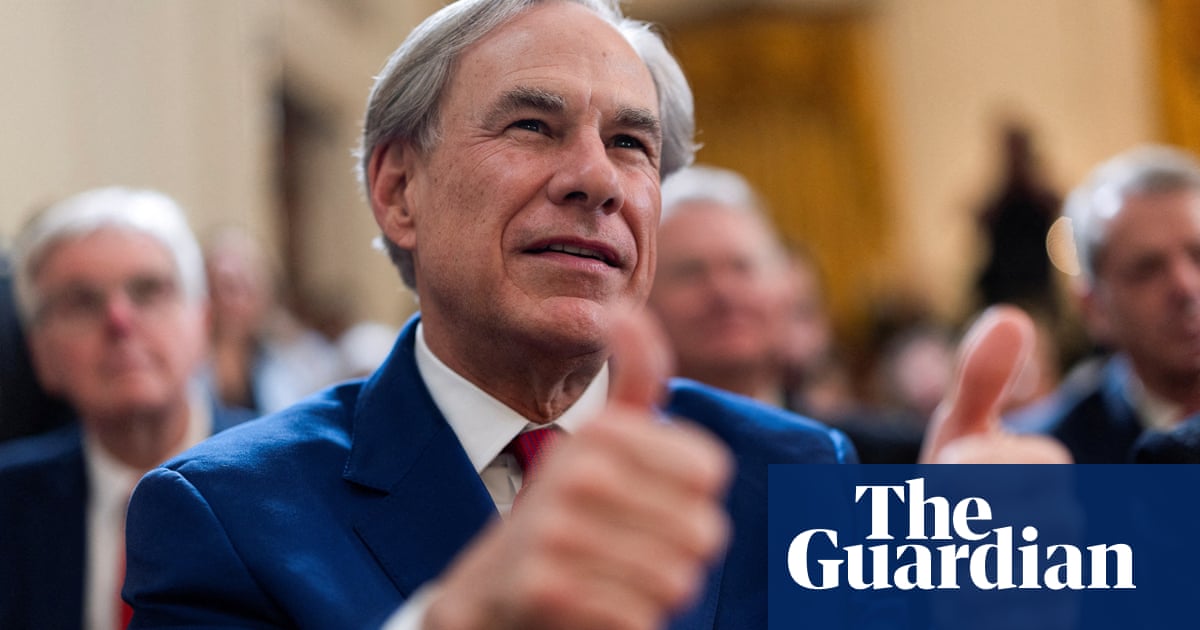
In a week of difficult local elections, there was a special guest in No 10 to give a pep talk to staff: Arsène Wenger, the former manager of Arsenal, beloved of the prime minister. Keir Starmer has sought his advice before, on the importance of building a team. And they have faced some common challenges, rebuilding their clubs and parties from low ebbs to extraordinary success.
Now Starmer may face a similar challenge – and criticism – to Wenger in his later years: whether he can adapt his tactical rigidity when results start to suffer.
So far, a successful strategy has been to win back Conservative switchers and working-class voters whom the party was felt to have abandoned. That has morphed into deep concern about the threat of Reform UK. In Runcorn and Helsby, lost by an agonising six votes having been one of Labour’s safest seats, Reform showed how it could turn out its machine.
But cabinet ministers have told the Guardian they are concerned that Labour’s own pendulum has swung too far and is alienating their own voters. In that same seat, Labour retained just 55% of its vote, suggesting many of its own voters did not turn out. The Greens, however, clung on to their vote from last July.
Nigel Farage may loom large as the biggest threat in some of Labour’s most vulnerable seats in the north and the Midlands. But MPs and ministers fear the threat in those seats of Labour staying at home and losing votes to the Greens, Liberal Democrats and independents could just as easily be the factor that would deliver seats to Reform, as more Conservative voters switch to Farage.
An example of this double bind came as council results trickled in on Friday, with Labour losing two Lancashire council seats in adjoining wards in Accrington on massive swings – one to the Greens and one to Reform.
Senior Labour figures have been sharing data that appears to suggest the party’s actual biggest risk is from losing progressive voters angered by a perceived inaction on the cost of living and potential cuts to public services, as well as by specific policies such as cuts to winter fuel payments and welfare.
Green campaigners said these issues were frequently raised by left-leaning voters before this week’s elections, with some expressing an almost visceral dislike of Starmer’s record thus far.
A new poll for the public affairs firm Apella Advisors, conducted by Find Out Now, found the threat of drifting progressive voters was significant. Among Labour 2024 voters, 43% said they would be likely to consider voting Green and 40% Lib Dems. Just 9% said they could consider voting Reform.
Welfare cuts are likely to be a major challenge, mainly because of the sheer number of people claiming personal independence payments, which is up to one in five people in some Labour constituencies.
At least three cabinet ministers have told the Guardian they feel uneasy at the apparent unwillingness in No 10 to spend any time speaking directly to progressive voters. “Where is this transformative change people were promised? Why are we not picking the fights we can pick on our own turf?” one minister said.
One said they felt a vacuum particularly acutely on two subjects, climate and the flagship workers’ rights bill, perhaps the most progressive-friendly legislation that has passed the Commons. “Keir talks about it passionately when you get him on the topic but there’s absolutely nothing proactive,” one cabinet minister said.
“I’m constantly making the case to No 10 that we can’t just talk to the right,” another said. “So we are at risk of losing voters to the left, and we need to have a strategy to reassure the left. And it’s so frustrating for me. Frankly, we need to be speaking to Guardian readers a lot more than we are.”
A saving grace, some ministers believe, is that the Greens are underperforming. “I think we are extraordinarily fortunate that the Green party are shit,” one minister said.
“If they had any kind of charismatic or populist leadership we’d be eight to 10 points further down the polls. I would still believe we could squeeze that vote if it came to it, but we should be aware that they may be voters who simply will not turn out for us.”
MPs have told the Guardian they perceive a loss of focus on the cost of living and on fixing public services.
“We should be constantly, relentlessly talking about costs for ordinary people. That is the only way to beat Reform,” said one MP facing a big challenge from Reform in his seat. “But it is also the only way we keep our core people onside.”
That concern is borne out by the Apella polling: it found Reform voters support a strongly interventionist, leftwing economic agenda, including nationalising utilities, higher taxes on corporations and for Britain to take steps to protect national industries from foreign competition.
There is a frustration among some No10 advisers that Labour has got little credit for its most progressive measures on the economy: raising the minimum wage and public sector pay and protecting the vast majority of workers from any tax rises, even on fuel. “When you’re Labour, people feel that stuff is baked in and they only remember the very hard decisions,” one said.
For all of those who are worried about the progressive vote, there are as many in the cabinet who feel strongly that Reform is by far the biggest threat Labour faces, especially as it squeezes the Conservative vote even harder.
“We won the large majority at the last election essentially based on a split on the right. At the moment that split is disappearing because so many Tories are going to Reform,” one cabinet source said.
“If we lose voters to Reform ourselves as well, that’s a lot of seats we will lose. If the next election is versus a Farage-Jenrick coalition then we can squeeze the progressive vote very hard. The choice in front of people will be very stark.”
This is part of the counterargument in favour of a focus on Reform which is being put forward by some in No 10 and the Treasury. That argument is threefold: that by the next election the government will be making tangible improvements to public services, especially the NHS; that a spending blitz would risk a Liz Truss-style meltdown; and that in four years’ time, faced with the threat of a Reform-Conservative coalition, progressive voters will vote tactically to stop them.
The data suggests that final assumption may be true: almost 80% of Labour 2024 voters are prepared to vote tactically to keep out Reform, according to More in Common data.
But there was little evidence of that in the Runcorn and Helsby result, where the Greens kept their share of the vote from 2024 election. But there was certainly significant evidence that Reform can even win wavering committed Conservatives over if the choice is between it and Labour. On the other hand, Labour managed to keep hold of the West of England mayoralty by squeezing Green voters, despite an unexpectedly strong Reform showing.
There are a growing number of MPs who believe a major economic reset is needed. That would be borne out by the polling. For those who have said they will no longer vote Labour, the winter fuel allowance, cost of living and a lack of public service improvement are the top reasons. Immigration is chosen by just 18% of switchers. Only about 1% cite policies on the environment or net zero, way down the priority list.
Senior strategists are not blind to the progressive problem. Morgan McSweeney, Starmer’s chief of staff, has told staff he knows the party has to widen its support base. “You have to rebuild the coalition after each and every election, because for some people the mandate was just to get the Tories out,” one ally said.
“When you look at the broadest possible coalition that we could build … for all of those voters who are open to voting for Labour, cost of living is number one and NHS waiting lists is number two,” another Downing Street insider said. “And having a health service that works is the most progressive thing we could do.”
Additional reporting by Raphael Boyd

 13 hours ago
6
13 hours ago
6













































